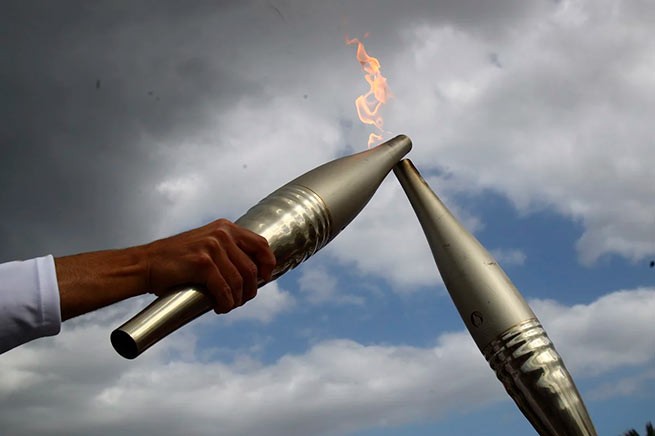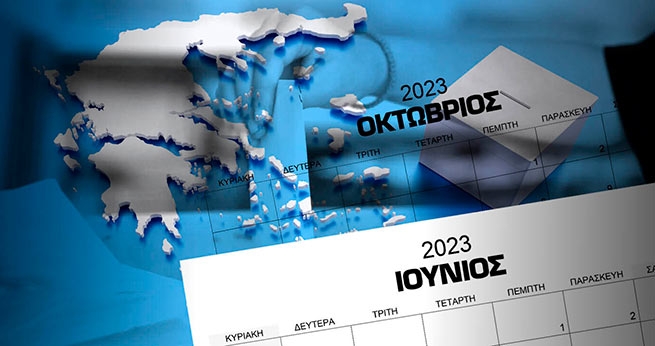A week has passed since the elections on May 21, in which there was a clear winner, New Democracy, and a big loser, SYRIZA.
The first impression last Sunday evening could have been that the party of Kyriakos Mitsotakis would easily win the re-election, which is why it returned the mandate to form a government that it received from the President of the Republic, Katerina Sakellaropoulou, in a simplified manner, but, as M. Voridis admitted, everything is not so simple.
In fact, there are currently four (plus one) scenarios for what the picture will look like on the evening of June 25: under two of them, it will be very difficult for New Democracy to form a government, and there is a high probability that we will have a third round of voting in October .
Let’s first consider the first scenario, according to which New Democracy, even if it loses 3-4 points, which is unlikely, will be able to form an independent government. This will happen provided that we have five-party parliament – that is, the June elections will be held with the same results as the elections on May 21, then it will be enough for the winner to gain about 37.5%.
However, it is quite probable that the parties of the right Niki (Νίκη – Δημοκρατικό Πατριωτικό Κίνημα – “Victory”) and the left “Plevisi Eleftherias” (Πλεύση Ελευθερίας – “Course of Freedom” by Zoe Constantopoulou) get into parliament, as they were pretty close to it. If one of the two parties gets into parliament, the bar will rise to 38.4%, a figure that New Democracy should not take for granted, despite the 41% it received on May 21st.
In particular, the possible strengthening of Nicky’s party may come at the expense of people who voted for New Democracy in the previous elections, so it is possible that the Blues will lose voters from the possible strengthening of this party. It is no coincidence that Kyriakos Mitsotakis visited Mount Athos, just as it is no coincidence that the ND is trying to strengthen its position in Northern Greece, where the Greek Solution has(Ελληνική Λύση) and “Nicky” had pretty high percentages.
It is worth noting here that there is another scenario – both of the above-mentioned parties go to parliament, but this excludes “Ελληνική Λύση“, which in the previous elections received a decent result. But this does not mean anything, because if they see that her voters are fleeing to Niki, then it is possible that the same story will happen as with the “Golden Dawn” in 2019, when she went from 4.87% in the European Parliament elections, to 2.93% in July and in the parliamentary elections, when she failed to enter parliament.This is also one of the reasons why Kyriakos Velopoulos called for the support of “patriotic forces” ahead of the June 25 elections.
It should be emphasized that for every party unit that enters parliament, the bar for self-sufficiency rises by about 0.3%. For this, there will be a real “slaughter” – whether we have a seven-party parliament or even an eight-party one.
If Niki and Plevisi Eleftherias get into parliament, while at the same time the Greek Solution manages to maintain its percentage, the self-sufficiency bar will rise to 39.3% and could reach 40%, depending on how much the parties outside the parliament get. In this case, the ND cannot afford to lose even half a point, as he will not be able to reach the required 151 seats. But what is certain is that even if she gets 40.79% and she has a majority of 152-153 deputies, she will still not be able to feel safe. The scenario that Maximu does not want to think about in any case is the passage of the eighth party to the parliament.
Janis Varoufakis has already announced major changes in MePA25 and called on voters to support his party in order to reduce the number of New Democracy MPs. If his party still manages to get into parliament, or if there is indeed a merger of parties, then the percentage that New Democracy will need will rise above 40%. And even if it reaches the percentage it received on June 25, it is unlikely that it will be able to form an independent government. In this case, everything will be decided in the block.
It is worth noting that at the moment this scenario is not confirmed by sociological surveys, but, as experience has shown, in this case, polls are not worth much, and anything can happen…
What is certain is that Kyriakos Mitsotakis has made it clear that he will not agree to co-rule with any other party, even if in recent days we see that the PASOK MPs are positive about such a possibility – until a terrible shout comes from N. Androulakis . The reason is simple: New Democracy has political dominance. Why rely on another party? Even if in the end she needs one or two deputies.
In addition, this was made clear in his statements – the answer to pronews.gr – Makis Voridis. “If there is no self-confidence in the elections on June 25, the country will certainly be led to a third vote,” the former interior minister said.
But it raises an important question: if New Democracy doesn’t gain self-confidence, when will we go to a third election? July is already on fire as the only scenario is to hold elections at the end of July, and the same is logically true for August.
As for September, this is also an option, but in October we have local elections, so most likely the parliamentary elections will take place at the same time, so as not to force people to go to the polls every few days.
So this proves that the law that New Democracy passed is very wrong, and Dora Bakoyannis was right when she wanted the law to be changed again in the winter and come out with a much clearer expanded proportional representation, but the seat bonus does not take into account the difference between the first and second parties.
The difference between the new electoral law and the bonus from the elections of 2007 and from 2012 to 2019 is that it is not fixed, but scalable, depending on the percentage of the first party.
If a party receives 25%, then the bonus is 20 seats, and the remaining 280 are distributed proportionally among the parties that entered the parliament. For every additional 0.5%, the bonus increases by one place (and the places of other parties decrease accordingly), up to a maximum of 30 places. Thus, the first party with 40% of the seats gets the maximum 50 bonus seats, as happened with New Democracy in the last elections.
Self-sufficiency depends not only on the percentage of the first party, but also in combination with the cumulative percentage received by parties that did not reach the 3% threshold. The higher the percentage of parties that remain outside parliament, the lower the bar for self-sufficiency. Conversely, the more parties in parliament (hence the lower percentage for other combinations), the higher the minimum percentage for the first party.







More Stories
4 scenarios for the development of the war in Ukraine
There was a scandal in Cyprus over the Prime Minister's plane, donated by K. Mitsotakis
Nuclear wrestling between the USA and Russia: are we heading towards the use of strategic weapons?